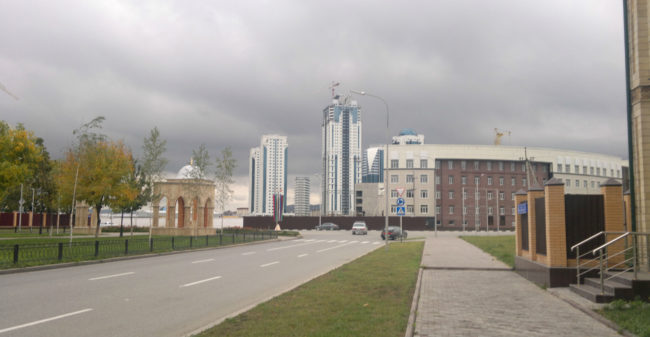
 Chechen authorities launched a major operation targeting suspected queer men in late March, according to Russian daily Novaya Gazeta. Reportedly, more than a hundred men were detained and at least three were killed.
Chechen authorities launched a major operation targeting suspected queer men in late March, according to Russian daily Novaya Gazeta. Reportedly, more than a hundred men were detained and at least three were killed.
According to Novaya Gazeta, the detained men include influential representatives of Chechnya’s Muftiate, who were close to Chechen Head Ramzan Kadyrov, and two famous TV presenters.
Russian human rights activist and analyst for International Crisis Group, a peacebuilding organisation, Yekaterina Sokiryanskaya told Ekho Moskvy that she had received similar reports from ‘many different sources’ over the past two weeks, and that she was aware of several cases where men suspected of homosexuality were tortured before being killed.
The repression may be connected to a major backlash following an attempt to hold pride parades in several North Caucasus cities. Requests to hold events were submitted in March to local authorities in the cities of Cherkessk, Maykop, Nalchik, and Stavropol by queer rights activist Nikolay Alekseyev, head of the GayRussia.ru project, but were rejected. The requests provoked a major debate across the North Caucasus, in which queer rights activism was overwhelmingly condemned as ‘incompatible with North Caucasian traditions’.
Chechen authorities denied Novaya Gazeta’s report, calling it an attempt to ‘tarnish Chechnya’s reputation’.
‘The publication is an absolute lie — you can’t detain and oppress someone who simply does not exist in the republic’, Ramzan Kadyrov’s spokesperson, Alvi Karimov, told Russian news agency Interfax. ‘If there were such people in Chechnya, the police wouldn’t have to worry about them, because their relatives would themselves send them to a place of no return.’
In an interview with radio Govorit Moskva, member of the Chechen Head’s Council on the Development of Civil Society and Human Rights, Kheda Saratova, said that persecution of queer people ‘wasn’t condemned’ in Chechen society and that homosexuality was ‘worse than war’.
‘I think that even if such a [queer] person is killed by their relatives, they will do everything to avoid disclosing it. And the entire judicial system and authorities will approach what happened in the family with understanding. Especially, they won’t speak up for this person. I haven’t received a single report [of murder], but I wouldn’t even consider it’, Saratova said.
Saratova later admitted that she ‘regretted her phrasing’, but she gave the interview ‘in a state of shock’, as she never thought that there were queer people in Chechnya.
Novaya Gazeta’s report provoked heated discussion in Chechen social media. Nadirsolta Elsunkayev, director of the Centre for Humanitarian Studies, a Chechen non-governmental organisation, wrote that the report was an attempt by organisations connected to foreign intelligence agencies to put queer rights on the agenda, in order to ultimately force the Russian leadership to legalise same-sex marriage.
Same-sex sexual activity was decriminalised in Russia in 1993. Queer couples in Russia have no legal recognition of their partnerships, and there are currently no laws prohibiting discrimination based on sexual orientation. In 2013, a law was passed making it a punishable offense to distribute ‘propaganda of nontraditional sexual relationships’ among minors. The law was condemned by the United Nations Committee on the Rights of the Child and by international human rights groups for its broad and ambiguous wording, which many critics characterised as being an effective ban on publicly promoting the rights and culture of the queer community.




 3 April 2017
3 April 2017


